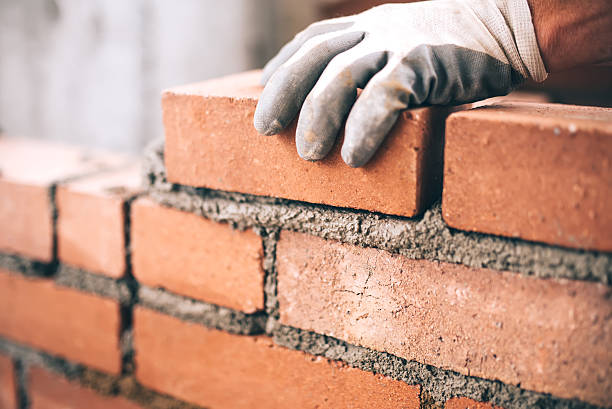High-quality Roofing Contractor Services for Your Home
Unlocking the Secrets of Lasting Masonry Building Practices for Eco-Friendly Structures
Amongst the myriad techniques to green building, lasting masonry building stands out as a time-tested and sturdy technique that holds a wide range of untapped capacity. From the choice of products to cutting-edge building and construction methods, the tricks to attaining sustainability within stonework building are multifaceted and intriguing.
Advantages of Sustainable Stonework Building And Construction
Accepting sustainable stonework construction techniques not just lowers ecological effect yet likewise uses lasting financial advantages to building contractors and communities. By making use of products like recycled blocks, blocks, and rocks, builders can considerably reduce the carbon impact of their projects while promoting resource effectiveness. In addition, lasting stonework construction methods, such as proper insulation and thermal mass properties, can improve energy efficiency within structures, resulting in decreased operational costs gradually.
Moreover, the resilience and resilience of stonework frameworks add to long-term financial advantages. Buildings constructed utilizing lasting masonry practices usually need much less upkeep and repair service, equating to set you back savings for building contractors and homeowner. The durability of stonework materials also makes certain that frameworks remain secure and protected, decreasing the need for frequent renovations or replacements.
Eco-Friendly Masonry Products
Making use of environment-friendly stonework materials is a critical step towards improving the sustainability of building and construction practices and minimizing ecological impact while taking full advantage of lasting financial advantages. Sustainable stonework materials are sourced, created, and used in a fashion that lowers overall environmental influence. Products such as recycled blocks, redeemed rock, and lasting cinder block are becoming significantly popular selections for eco-conscious builders. Recycled blocks, for instance, not only draw away waste from land fills yet additionally call for less energy to produce compared to new bricks. Reclaimed stone uses an one-of-a-kind visual allure while minimizing the need for brand-new quarrying. Sustainable concrete blocks integrate recycled accumulations and might feature improved insulation buildings, adding to power performance in buildings.
Furthermore, natural materials like adobe, rammed earth, and straw bundles offer excellent thermal mass residential or commercial properties, minimizing the need for home heating and cooling down power. These products are often in your area available, promoting regional economic situations and decreasing transportation-related carbon discharges. By selecting environmentally friendly masonry products, building tasks can considerably minimize their environmental impact and contribute to the production of healthier, extra sustainable constructed settings.
Energy-Efficient Masonry Techniques
Power performance plays an important function in enhancing the sustainability of stonework construction techniques. One essential energy-efficient stonework strategy is the usage of thermal mass, which involves including thick materials like concrete or straight from the source block into the building's structure to soak up and save warm.

Advancements in Lasting Stonework
Recent improvements in sustainable stonework methods have produced cutting-edge strategies that are reshaping the building and construction sector. One such advancement is the growth of self-healing concrete, which makes use of microorganisms embedded within the concrete to recover fractures autonomously. This development not only lowers upkeep prices but also boosts the durability of masonry frameworks, contributing to their sustainability.
One more noteworthy advancement is making use of recycled accumulations in masonry building and construction - masonry contractor. By incorporating products such as smashed ceramic waste or recycled glass right into concrete mixes, building contractors can reduce the ecological impact of construction projects while keeping architectural integrity. This practice not only diverts waste from land fills yet also preserves helpful resources natural sources, making it a crucial innovation in sustainable masonry building and construction
In addition, the assimilation of digital style devices, such as Structure Information Modeling (BIM), is changing the way stonework frameworks are planned and created. BIM permits more accurate estimations, minimized material wastage, and improved power efficiency, eventually bring about even more sustainable building techniques. These developments collectively signify an encouraging future for sustainable stonework building in the carmax sell my car age of green buildings.
Future Trends in Stonework Sustainability
With the ingenious strides made in lasting masonry methods, the future fads in masonry sustainability are positioned to more reinvent the building and construction market. One of the crucial trends forming the future of masonry sustainability is the enhanced combination of modern technology. Innovations such as Building Information Modeling (BIM) and virtual fact simulations are being used to maximize stonework building and construction procedures, leading to lowered product waste and enhanced energy efficiency in buildings.
Furthermore, the growth of unique lasting products is readied to play a considerable function in improving the eco-friendliness of masonry building. masonry contractor. Advancements like self-healing concrete, recycled accumulations, and bio-based binders are obtaining grip for their capability to minimize environmental influence while keeping structural honesty

Verdict
In conclusion, lasting masonry construction techniques offer various benefits for environmentally friendly buildings. masonry contractor. Advancements in lasting stonework are constantly being established to better improve the environmental efficiency of buildings.